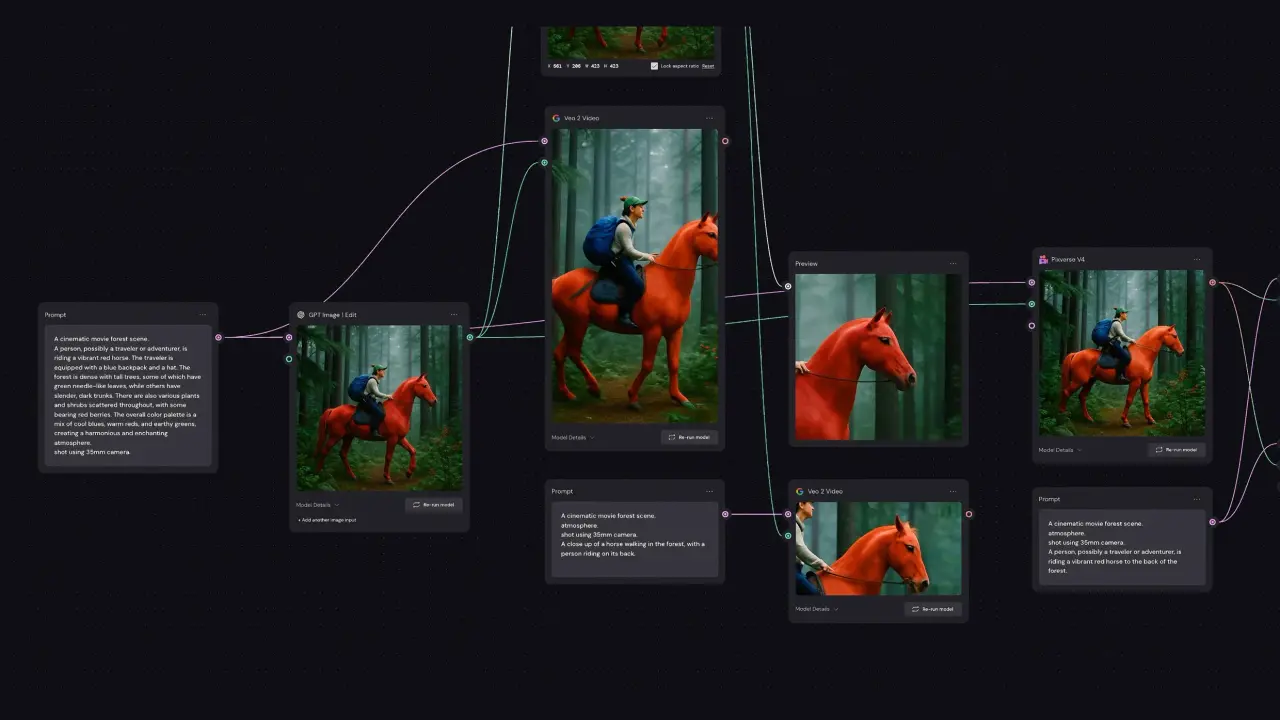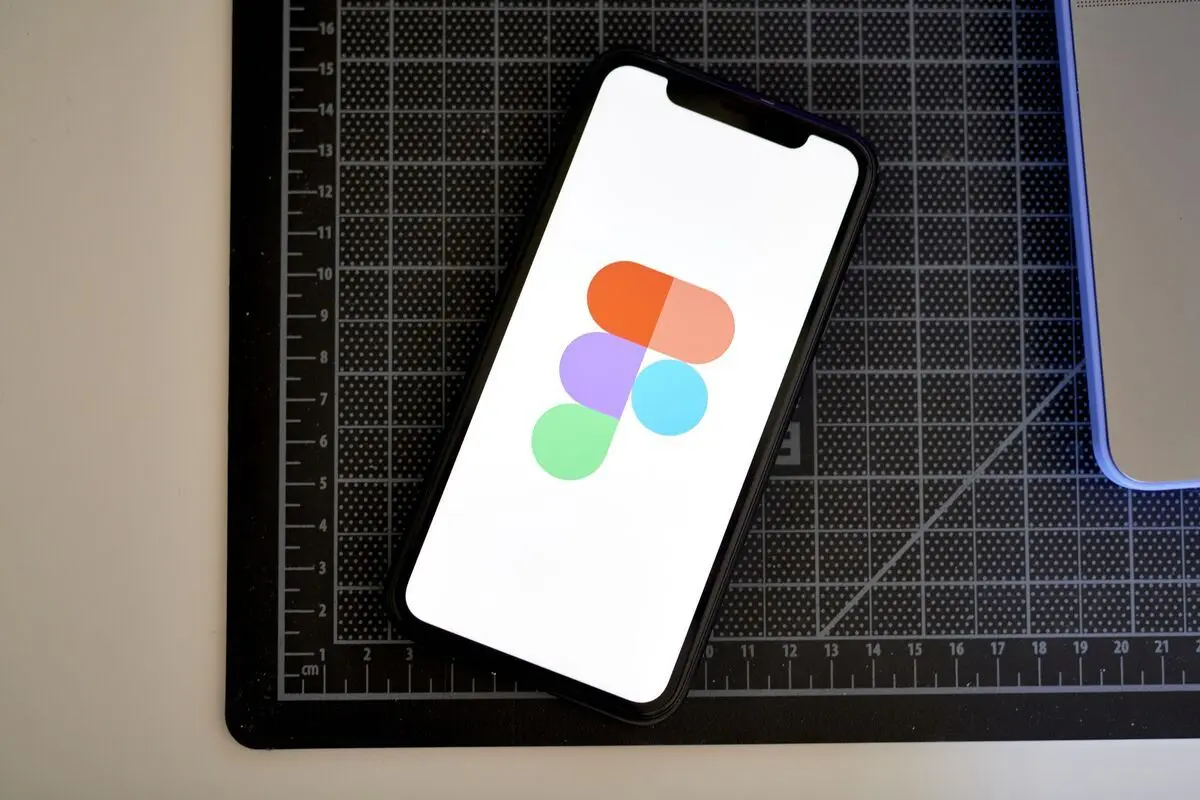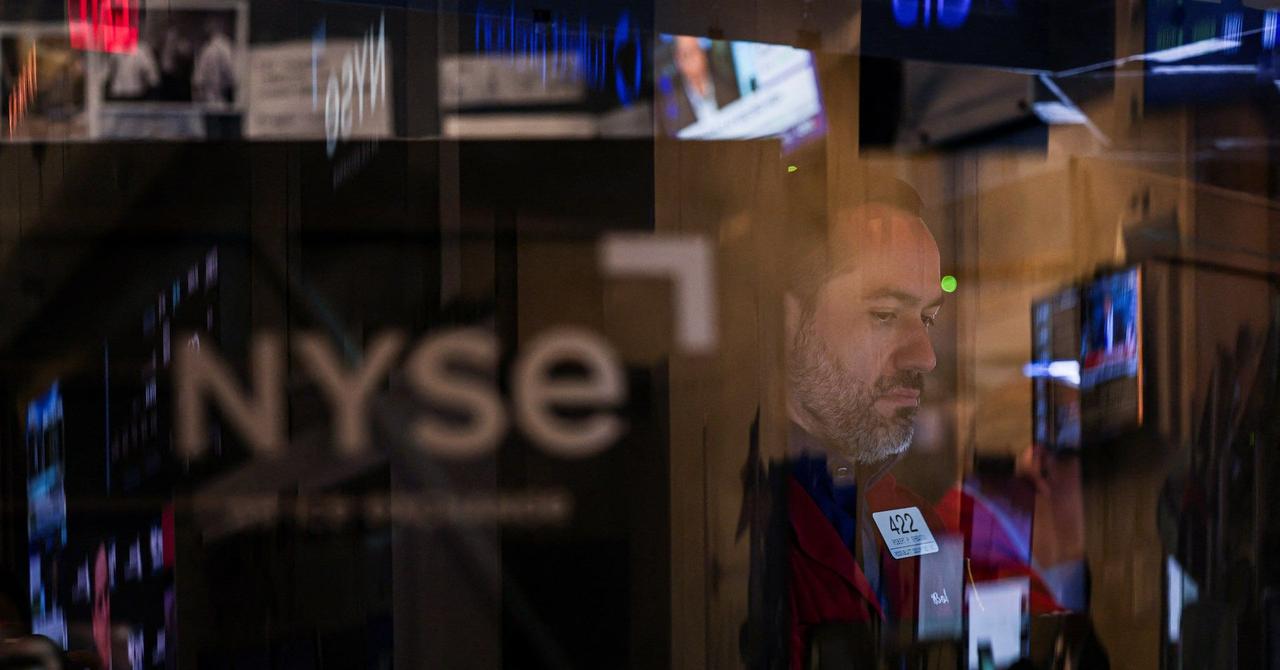Figma Acquires AI Design Startup Weavy for $200M+, Launches Figma Weave Platform
5 Sources
5 Sources
[1]
Figma acquires AI-powered media generation company Weavy | TechCrunch
Design platform Figma said today that it has acquired AI-powered image and video generation company Weavy. The startup will join Figma under a new brand called Figma Weave. Figma said that 20 people from Weavy will join the company, but didn't disclose the valuation of the deal. The Tel Aviv-based startup was founded in 2024 and raised $4 million in a seed round in June led by Entrée Capital, with participation from Designer Fund, Founder Collective, and Fiverr founder Micha Kaufman. Figma said that Weavy will exist as a standalone product for now and that, in the future, it will be integrated with the Figma Weave brand, along with the rest of the Figma platform. Weavy's web tools enable users to combine different AI models and offer users pro editing tools to create high-quality images and videos for use in product mockups or brand styling. Users can edit these media generations with layer edits, adjust lighting, change colors, and angles through prompts to acheive the final result they want. Users start with an element like a prompt for an image generation on an infinite canvas, look at results from different models, pick one image, and add another prompt for video generation, and look at different results produced by various models. At any point, users can use the edit tools to change the look of a video. Designers can also combine multiple prompts and models to get to the output they want. The startup offers different models such as Seedance, Sora, and Veo for video, and Flux, Ideogram, Nano-Banana, and Seedream for image generation. "This node-based approach brings a new level of craft and control to AI generation. Outputs can be branched, remixed, and refined, combining creative exploration with iteration and craft. The Weavy team has inspired us with the balance they've struck between simplicity, approachability, and power. They've also created a tool that's just a joy to use," Figma CEO Dylan Field said in a statement. AI-powered design platforms are in demand to create media generation and design workflow capabilities. Earlier this month, AI search platform Perplexity acquired the team behind the Sequoia-backed design platform Visual Electric. In April, Krea announced that it had raised $83 million across various rounds from firms like Bain Capital, a16z, and Abstract Ventures.
[2]
Figma's new app lets you combine multiple AI models and editing tools
Figma has acquired Weavy, a creative platform that allows users to link AI models and editing tools together, and use them simultaneously in a single canvas. The platform will now live under its new parent company as "Figma Weave," according to Figma's announcement, adding an image and video editing tool to Figma's growing design ecosystem. Weavy uses a node-based approach to give creators more control when making AI-generated content. Instead of repeatedly using prompts in a single AI app, users can make branches that add multiple steps to the process, instructing the platform to edit a project using multiple tools without jumping to another app, or feed a single set of instructions into multiple AI models simultaneously to compare the best results. "We see AI outputs as a new medium to mold, and we believe the combination of human craft alongside AI generation unlocks more expression and a bolder point of view," Figma said in the announcement. "If you want to stand out, you have to push beyond the prompt to get to something great."
[3]
Figma acquires AI design startup Weavy for reported $200M+ - SiliconANGLE
Figma Inc. has bought Weavy Inc., a startup with an artificial intelligence platform for creating images and videos. Figma announced the acquisition today without disclosing its financial terms. Calcalist reported that the transaction values Tel Aviv-based Weavy at more than $200 million. That's about 50 times the amount of funding the startup raised prior to the deal. The acquisition is Figma's first since its high-profile initial public offering in July. The company and its investors sold nearly 37 million shares for $1.2 billion. Figma ended its first day on the NYSE at $115.5 per share, a more than 200% premium to the price that IPO participants paid. Weavy, which counts Fiverr International Ltd founder Micha Kaufman among its investors, launched about a year ago. The company's namesake AI design platform enables users to create images, animations and videos with prompts. Weavy says that its installed base includes teams at multiple Fortune 100 companies. The platform's interface centers on a graph that comprises a series of interconnected boxes. One set of boxes might contain ad visuals, while another could be used to store marketing copy. A Weavy graph can contain dozens of content boxes. Users can start a new project by uploading a description of the object they wish to draw and a reference image. From there, Weavy uses a large language model to generate a text overview of the user's design requirements. It then inputs that text into image and video generation models. Weavy provides access to more than a dozen third-party AI models. If a project requires an algorithm that closely follows instructions while generating an image, Weavy launches Google LLC's Micro Banana algorithm. It activates Veo or Sora when users request a custom video. Designers can edit the content that Weavy generates with natural language instructions. The platform can resize an object, change its style and switch the background. It's also capable of creating new objects from scratch based on detailed multi-sentence prompts. Figma plans to relaunch Weavy as a product called Figma Weave. The offering will join the more than half dozen design tools that the company has released over the past three years. Figma's flagship product, Figma Design, is geared mainly toward creating website and mobile app interfaces. It enables designers to collaborate in real-time similarly to Google Docs. A company can set design guidelines for its design teams to ensure that visuals follow a consistent format. Figma's other tools focus on adjacent use cases. Figma Draw, which debuted earlier this year, speeds up illustration tasks by automating repetitive work. Another Figma tool called Dev Mode makes it easier for software teams to access the code associated with a website or mobile app design. The Weavy acquisition extends Figma's product portfolio to the video editing and animation segments, where it currently doesn't have a significant presence. The company's existing tools enable developers to embed videos and animations into interface designs, but provide limited support for more advanced tasks. The deal could enable Figma to compete more directly with Adobe Inc., which sought to acquire it in 2022 for $20 billion. The transaction fell through the following year after UK regulators raised antitrust concerns. Adobe offers multiple video editing and animation tools alongside its Photoshop graphics editor.
[4]
Figma acquires Weavy, a workflow tool with 'artistic intelligence'
Recently, Figma CEO Dylan Field assembled employees from throughout the company for a demo of a new-ish tool for generating, refining, and editing synthetic images and videos. Rather than being built around one-off prompts, it allowed users to create visual workflows for comparing and manipulating options created by different AI models. It also facilitated putting imagery through multiple rounds of polishing and remixing, adding a large dose of human taste and quality control to the process. According to Field, they were "mesmerized" by what they saw. "We had it scheduled for 20 minutes," he remembers. "And 20 minutes came, and everyone's like, 'No, no, please keep going. We'll cancel the next session -- this is the most magical thing.' We went for an hour." The tool that wowed the Figmates, as Figma employees call themselves, was the creation of an Israeli startup. Both were known as Weavy -- but not for long. Figma had already agreed to acquire the company. Slightly rebranded as Figma Weave, its product will join Figma's growing portfolio of web-based apps for designing interfaces, whiteboarding ideas, creating presentations, AI-assisted coding, and more. Figma isn't disclosing the terms of the acquisition, its first since its July IPO. It will result in around a dozen Weavy staffers joining the company, including cofounders Lior Albeck, Jonathan Alumot, Jonathan Gur-Zeev, and Itay Schiff. Describing its vision as "artistic intelligence," the startup was founded in 2024 and announced a $4 million seed funding last June. In its short existence, it had lined up an impressive customer list, including Google, Nvidia, Toyota, Dyson, Panasonic, and HP.
[5]
Figma Just Spent $200 Million on an AI Start-Up. Here's Why It Could Be What Investors Have Been Waiting For. | The Motley Fool
Figma is moving full speed ahead into artificial intelligence (AI). Figma (FIG 3.88%) was one of the hottest IPOs of the year on July 31, surging out of the gate from a listing price of $33 to an intraday peak above $142 the following day. However, since then, Figma, which makes cloud software for user interface and user experience (UI/UX) design, has struggled, falling on concerns about valuation, on forecasts for declining profits as it invests in artificial intelligence (AI) products, and as larger rival Adobe has made progress with its own AI products. The stock is now trading at a post-IPO low under $50, but it recently gave investors one reason to keep faith in the stock: It just acquired an AI start-up. Here's what you need to know. On Thursday, Figma announced its acquisition of Weavy, which it describes as a platform that brings generative AI and professional editing tools together. It did not say what it paid, though estimates peg the value at around $200 million. Now renamed Figma Weave, the new product will complement the company's tools for building out image, video, animation, and other forms of media. Weavy allows users to choose from a wide variety of AI models, including OpenAI's Sora video generation platform, giving users a broad range of design choices and the ability to remix and refine them down to small details. Weavy is less than a year old, but Figma touted the strength of its community and called Weavy "a tool that is just a joy to use." On its own, Weavy is unlikely to be a difference-maker for Figma. In fact, the stock slipped on Thursday, seemingly in response to the news, and amid a broader sell-off on concerns about overspending in AI across the industry. However, the Weavy acquisition is just one component of a larger strategy to harness the power of AI, as the company launched a number of AI-based products in the second quarter. Software companies like Figma are in the land grab phase of AI, and it's important for them to roll out products to land new customers while investing in this technology. Delaying could be costly, and it could lead Figma to fall behind a competitor like Adobe or even an AI start-up. Looking at it that way, the Weavy acquisition looks like a smart move, and Figma's aggressive approach in AI should pay off over the long run. Investors might have to be patient, but the company is executing well, despite the recent price action in the stock.
Share
Share
Copy Link
Figma has acquired Israeli AI startup Weavy for over $200 million, rebranding it as Figma Weave. The acquisition brings advanced AI-powered image and video generation capabilities to Figma's design ecosystem, allowing users to combine multiple AI models in a single workflow.
Major Acquisition Expands Figma's AI Capabilities
Figma has completed its first acquisition since going public in July, purchasing Israeli AI startup Weavy for a reported value exceeding $200 million
3
. The design platform giant announced the deal without disclosing financial terms, but the transaction represents approximately 50 times the amount of funding Weavy had previously raised3
.Source: TechCrunch
The Tel Aviv-based startup, founded in 2024, had raised $4 million in a seed round in June led by Entrée Capital, with participation from Designer Fund, Founder Collective, and Fiverr founder Micha Kaufman
1
. Despite its brief existence, Weavy had assembled an impressive customer base including Google, Nvidia, Toyota, Dyson, Panasonic, and HP4
.Revolutionary Node-Based AI Design Platform
Weavy's platform distinguishes itself through a unique node-based approach that allows users to combine multiple AI models and editing tools within a single canvas
2
. The system enables creators to branch their workflows, adding multiple steps to the creative process without switching between different applications.
Source: Fast Company
The platform provides access to more than a dozen third-party AI models, including Google's Micro Banana algorithm for precise instruction-following, and video generation models like Veo and Sora
3
. For image generation, users can leverage models such as Flux, Ideogram, Nano-Banana, and Seedream1
.
Source: The Verge
Users begin with prompts on an infinite canvas, compare results from different models, and can seamlessly transition from image to video generation while maintaining editing control throughout the process
1
.Strategic Integration as Figma Weave
The acquisition brings approximately 20 team members from Weavy to Figma, including cofounders Lior Albeck, Jonathan Alumot, Jonathan Gur-Zeev, and Itay Schiff
1
4
. The platform will be rebranded as Figma Weave and initially operate as a standalone product before future integration with Figma's broader ecosystem.Figma CEO Dylan Field expressed enthusiasm about the acquisition, noting how the tool captivated employees during an internal demo that extended from a planned 20 minutes to a full hour
4
. "This node-based approach brings a new level of craft and control to AI generation," Field stated, emphasizing the balance between simplicity and power that Weavy achieved1
.Related Stories
Competitive Positioning and Market Impact
The acquisition extends Figma's product portfolio into video editing and animation segments where it previously lacked significant presence
3
. This move positions Figma to compete more directly with Adobe, which attempted to acquire Figma for $20 billion in 2022 before the deal collapsed due to regulatory concerns3
.The timing reflects broader industry trends, with AI-powered design platforms experiencing high demand. Earlier this month, Perplexity acquired the team behind Sequoia-backed design platform Visual Electric, while Krea announced $83 million in funding from firms including Bain Capital and a16z
1
.Despite initial market skepticism reflected in Figma's stock performance since its July IPO, analysts view the aggressive AI strategy as necessary for long-term competitiveness
5
.References
Summarized by
Navi
Related Stories
Figma delivers strong revenue growth outlook, easing Wall Street's AI disruption fears
18 Feb 2026•Business and Economy

Figma Unveils AI-Powered Tools for Web Design, Prototyping, and Marketing
08 May 2025•Technology

Figma partners with Anthropic on Code to Canvas as stock plunges 85% amid AI disruption fears
17 Feb 2026•Technology

Recent Highlights
1
Samsung unveils Galaxy S26 lineup with Privacy Display tech and expanded AI capabilities
Technology

2
Anthropic refuses Pentagon's ultimatum over AI use in mass surveillance and autonomous weapons
Policy and Regulation

3
AI models deploy nuclear weapons in 95% of war games, raising alarm over military use
Science and Research





